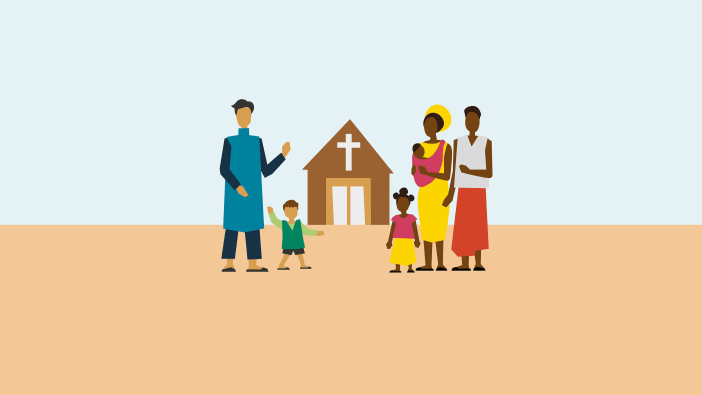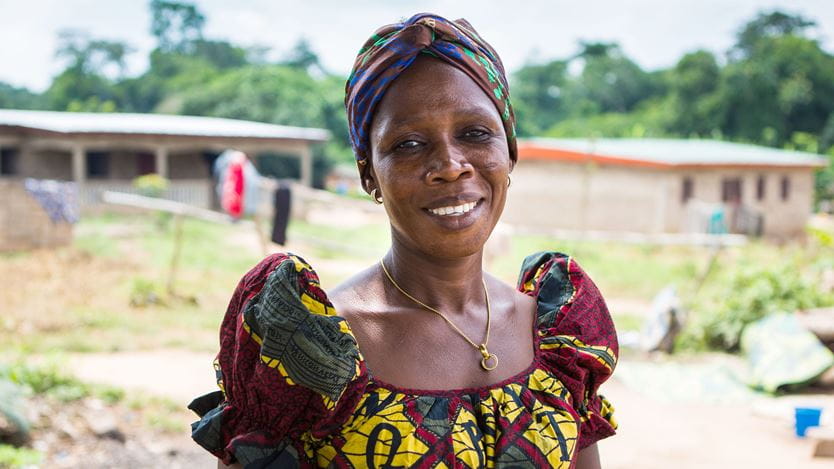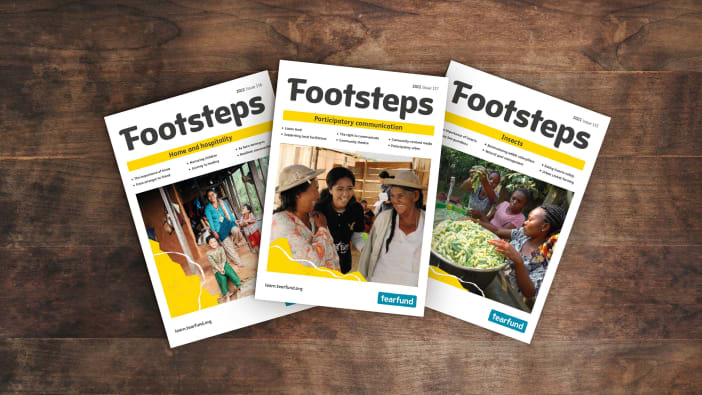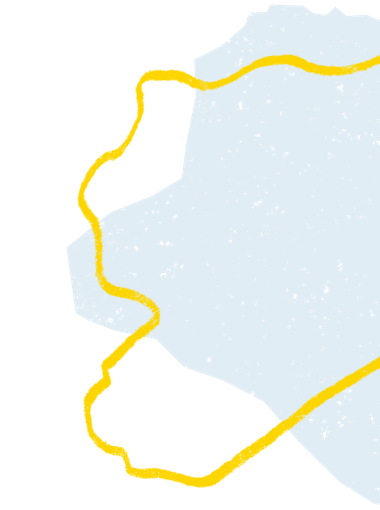The church and community mobilisation process, or CCMP, is a process designed to awaken and empower churches to respond to all the needs in their communities. The church and the community work together to mobilise local resources, reach the poorest and most marginalised people, and overcome poverty.
The objective of CCMP itself is to capture the attention of people, to empower people to transform their situation using their God given resources in a sustainable and holistic manner.
CCMP is made up of five stages. The first stage called ‘Church awakening’, uses participatory Bible studies. This helped the church discover its potential and purpose, discover and mobilise its local resources and take on its responsibility to address the needs of its community.
We begin with the church because the kind of change that is desired is change that touches the total person.
The end result of CCMP is how people could be reached holistically. It’s looking at the spiritual, the social, the physical of the person.
“The church is in every community. So it's a more sustainable way of doing it because they would never leave.” - Mrs Dinatu Ayiinzat, CCMP Trainer, Nigeria
By the end of stage one, the church is ready to reach out to its community to start building relationships. Stages 2 to 5 of CCMP see the church and community working together to mobilise their local resources, to take ownership of the change they want to see in their community.
“I learnt through CCMP that we have God-given resources, and we do not have to stay like this without working and without hoping for any change in our lives. But as soon as I understood this, it made a real change in my mindset - I realised that I can make things happen in my life.“ - Izadene Debora, Makeure Village, Chad.
“When CCMP came to Manglai, I was running a little business, but after I heard about CcMP, after thinking about it, things started to move forward. I did more trading, and the business kept growing. I use this money to pay for the children’s school fees.“ - Yao Georges, Manglai Kan, Côte d'Ivoire.
“In the beginning, and with the grace of God, I started with the sum of 200,000 FCFA. And when I started in the early days, the chickens I took cost 150,000 FCFA. Some time later I bought a second supply of 300 chickens. The sale of these 300 chickens helped me a lot. That’s the money I used to advance the construction of my house.“ - Kouakou Jean-Luc, Kokumbu, Côte d'Ivoire.
The role of the church - where the church then sees itself as salt and light to the community around it, has built bridges and as a result relationship between the church and the community really just begins to grow.
When we build those relationships, we need to see ourselves as brothers and sisters trying to achieve a common goal.
“Before CCMP, there was no collaboration between the church and the community. Now the community meet, discuss and make decisions together.” - Tailacebe Tchika Lundi, Makeure Village, Chad.
“The church and the community decided together to create a school for the benefit of all the children in the village. Also, they decided to create a health centre.” - Chief Gnene Toni, Makeure Village, Chad.
“We had never dreamed that one day, in our village, we would have water from a tower. It is the only village which has drinking water from a tower in the whole region. We have the borehole which is right here. That is the result of CCMP. When there wasn’t any clean water, we used to suffer a lot from diarrhoea. That doesn’t happen now. There are only rare cases now. Sickness and stomach aches are a thing of the past!“ - Tedang Paul, Makeure Village, Chad.
“When CCMP arrived in the village, we, the adults, the old people, the children, began to work together, united. We understood that this was the way for us to develop. And the decisions we made together and proposed for the village were adopted. We are not divided, we are united. We grow cassava, eggplant and chilli that we consume in part and sell as well.“ - Kofi Kan Afely, Manglai Kan, Côte d'Ivoire.
The process can take years and will lead to a repeated cycle of reflection and action. The principles that are learned will change someone's mindset, changing how people live throughout and beyond the end of the process.
“We were blind people, and now through CCMP our eye are opened, and I, as chief of this village, am proud of my people.” - Chief Gnene Toni, Makeure Village, Chad.
“The CCMP has transformed my life and the community of Makerue. Based on the current achievements thanks to the CCMP, I can say that the future of Makeure will be better, and I strongly believe it.” - Izadene Debora, Makeure Village, Chad.








